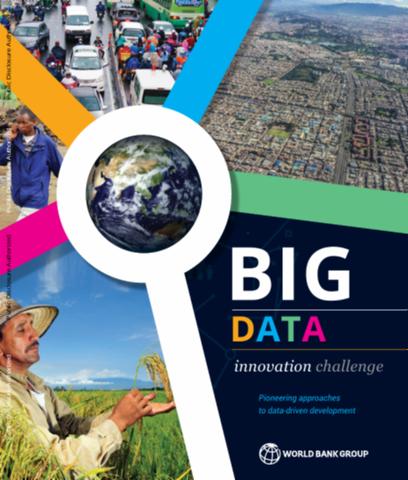Resource information
Big data can sound remote and lacking a human dimension, with few obvious links to development and impacting the lives of the poor. Concepts such as anti-poverty targeting, market access or rural electrification seem far more relevant – and easier to grasp. And yet some of today’s most groundbreaking initiatives in these areas rely on big data. This publication profiles these and more, showing how data on an unprecedented scale has the potential to improve lives in unprecedented ways. The featured case stories illustrate the diverse range of big data applications in development. For the World Bank, with twin goals of ending extreme poverty and boosting shared prosperity, big data is big news – and this is just the beginning. The Big Data program brings togetherdata scientists, social scientists and sector specialists in a work program with two main objectives: To accelerate organizational capabilities in big data analytics for use in research and operations – to help the World Bank Group (WBG) better work towards ending extreme poverty and boosting shared prosperity. To position WBG as a leader in the use of big data solutions in development. The program aims to scale early pilots into projects that solve significant development challenges, and to establish best practices for using big data analytics to steer evidence-driven development. Launched in September 2014, the Big Data Innovation Challenge has been key in encouraging big data approaches. Exceeding all expectations, it attracted 131 innovative proposals and awarded 14 with funding and expertise to enable big data analytics in their projects. The winning initiatives cover an exciting range, from using satellite imagery to improve poverty mapping, to mining social media data to understand political sentiment, or cellphone data to increase the use of banking services. Others promote traffic flows or accountable road building, anticipate crop yields, predict violent crime and promote registration of land rights. This publication profiles 16 extraordinary initiatives from the Challenge winning teams and finalists. The case stories examine the application of big data analytics and how it can help achieve project goals.


